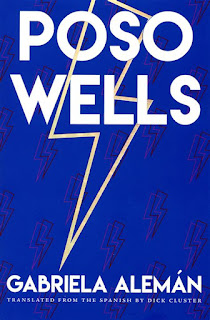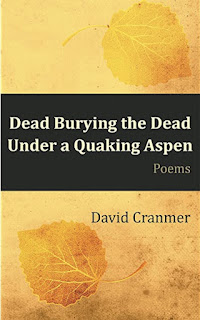I read for many reasons, for pleasure sure, and also for research. I started a new book this year and for inexplicable reasons I knew John Steinbeck was part of the key to the book’s tone. Along the way I read East of Eden two and a half times. It is a dark deeply rich generational novel. I discovered Steinbeck’s Journal of a Novel — The East of Eden Letters, a journal he wrote every day before writing on the novel as a way of warming his writing muscles up for the chapter ahead. It encompasses lots of good writerly advice and a chance to see that Steinbeck stumbled just as often as any writer.
Steinbeck’s Sweet Thursday, is a comic gem. The sequel to Cannery Row, it is charming and oddly romantic.
Half of the novel I’m working on takes place in Southern California and a second story line takes place in Ecuador. Fifteen years ago my father, my son, and I went to Ecuador to visit a shaman in the Andes and the Shuar people in the rainforest. I knew a little, but I find fiction helps me get to the truth of a place, so I looked for some Ecuadorian authors.
Poso Wells by Gabriela Alemán. A Brazil-born Ecuadorian writer, Alemán delivers a truly original crime novel. People are disappearing from a town built on garbage. No one cares until a politician goes missing. I’ve seen it described as “a noir, feminist eco-thriller”. That’s accurate but any label may be reductive. It’s a thrilling trip into a world I need to know more about. Her short story collection Family Album is equally brilliant.
Along with research on setting and tone for my currant MS, I am always reading books to learn more about the craft of writing. I work intuitively. I don’t break down a book and look under its hood, the learning comes from reading a book I love that does something I don’t do, and letting it seep into my subconscious. I often learn more from books that reside far afield from my work.
I wanted to discover how multi character and multi timeline stories work. David Mitchell and Emily St. John Mandel are two writers who continually create complicated tales that work seamlessly.
Utopia Avenue by David Mitchell, is about a rock band forming and climbing its way to semi stardom in the 1960s - 70s. It’s about very different musical artists before they came together and after. It adds to historical reality with cameos from David Bowie, Jerry Garcia, Leonard Cohen, Joni Mitchell, Cass Elliot and more. It also has supernatural and Sci-Fi elements that are better read than explained.
The Glass Hotel by Emily St. John Mandel, in a macro sense is about a Bernie Madoff style Ponzi scheme and the price paid by individual investors and living in the world of senseless wealth. It’s also about a young woman and her half brother stumbling through life and trying to discover themselves. It is more than anything I can say about it. And a perfect example of how a book can be not about what it’s about, and still be perfection.
Creative Quest by Questlove, is about writing without being about writing. I picked this up on audio book to listen to while driving to Mexico to see my dentist. I love the Roots, a band he co-founded, and was charmed by his documentary Summer of Soul. What I didn’t know was how much thought he’s given to the creative process. He talks about the creative process of chefs and film makers and I am reminded when we take out the details it’s all the same job.“[Creativity] is about finding your own unique way of fitting into the continually repeating human experience.”
I have returned, or at least stumbled back into the poetry section of the library lately. As a young man my wife and I loved poets enough to name our first born after Dylan Thomas. Somehow as I grew older poetry felt less relevant, how wrong I was.
Dead Burying the Dead Under a Quaking Aspen by David Cranmer. David Cranmer is an editor and publisher for BEAT to a PULP. He published Blow Jobs, one of my favorite short stories. So when I saw he had a book of poetry out I grabbed it. I’m glad I did. It is a mix of personal and political pieces. All strong in voice and tone. The last piece in it is Daughter, where he describes his work as a place for her to live when he is gone.
Book of Gods & Grudges by Jessica L. Walsh. Hard as nails, as profound as punk rock. In short tight lines she speaks to how I feel. “When My Daughter Tells Me I Was Never A Punk” is the perfect Riot Grrrl scream explaining a life well lived can be the most punk answer to a world that wants you on your knees. Jessica L. Walsh delivers a novel worth of story in one page. I think this is because she, like most poets knows the best stories live beyond, before and after, the plot we are telling.









Oooooh - I've never read the sequel to Cannery Row, which I adore. AND that's a new David Mitchell too.
ReplyDelete